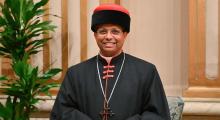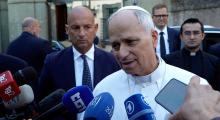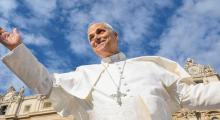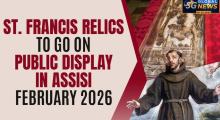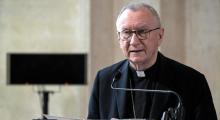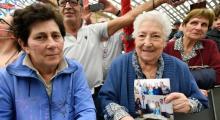Issued by the Catholic Center for Studies and Media - Jordan. Editor-in-chief Fr. Rif'at Bader - موقع أبونا abouna.org
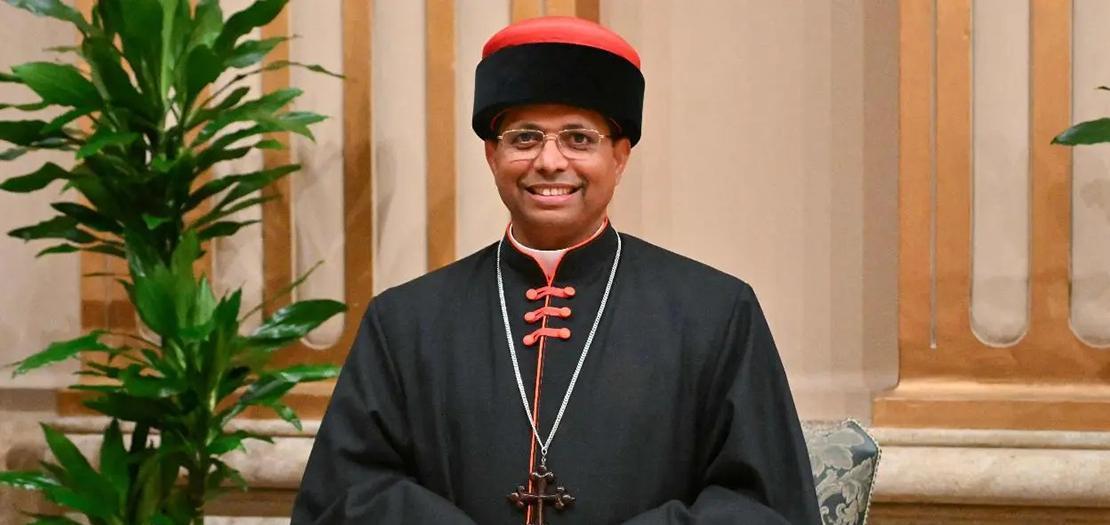
Cardinal George Jacob Koovakad on Friday addressed an assembly of religious leaders, civic representatives, scholars, and peace activists at the interreligious celebration “Pilgrims of Hope – Religions Journeying for Peace,” held at Saint Andrew’s Auditorium in Mumbai. The event was organised by the Archdiocese of Bombay as part of the Jubilee Year 2025.
Feast day of Saint Francis of Assisi
Opening his address, the Prefect of the Dicastery for Interreligious Dialogue highlighted the significance of the day, coinciding with the feast of Saint Francis of Assisi, whom he described as “the saint of fraternal love, simplicity and joy,” and a pioneer of interreligious dialogue who “sowed seeds of peace.”
Nostra Aetate
The Cardinal also reflected on the 60th anniversary of Nostra Aetate, Pope St Paul VI's landmark document of the Second Vatican Council, which paved the way for modern interreligious dialogue.
“We rejoice for the tremendous role this document has played in promoting dialogue among people of different religions across the globe,” he said, noting that the principles of Nostra Aetate continue to inspire “fraternity, friendship, unity and solidarity for the good of humanity.”
Quoting Pope Francis on the enduring significance of Nostra Aetate, the Cardinal recalled: “The Holy Spirit is at work, as a font of peace and love,” highlighting the Church’s commitment to recognising the beauty and truth in all religions while fostering dialogue.
He also cited Pope Benedict XVI’s words on interreligious dialogue as “a journey together, even with differing images of God, towards the source of Light.”
Contemporary challenges
Cardinal Koovakad drew attention to the contemporary challenges facing humanity, including intolerance, discrimination, and violence, and urged participants to become “pilgrims of hope.”
He explained, “As believers, we are called to be men and women of hope who bring hope to those who have lost it, especially the poor, the suffering, the marginalised, the discriminated, the persecuted and the most vulnerable in society.”
He stressed that religions, through their spiritual and moral resources, have a unique role in fostering reconciliation and healing.
Quoting Pope Leo XIII, he affirmed that “religion, at its core, is not a source of conflict but a wellspring of healing and reconciliation.” He added that interreligious dialogue allows believers to “bear witness to the truth that faith unites more than it divides” and strengthens “our hope for a better and more just world.”
Persevere in efforts for peace
Concluding his address, Cardinal Koovakad encouraged all participants to persevere in their efforts for peace despite difficulties and skepticism.
He reminded the audience that “interreligious dialogue is a necessary condition for peace in the world” and called on all to continue to be “pilgrims of hope and builders of peace” who sow seeds of goodness wherever they go.


